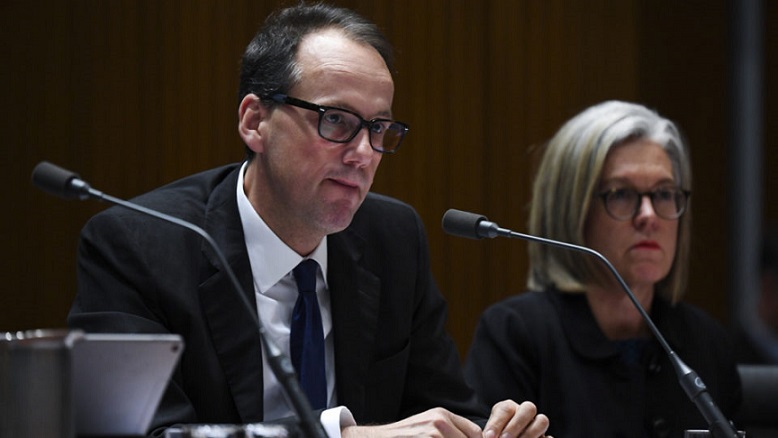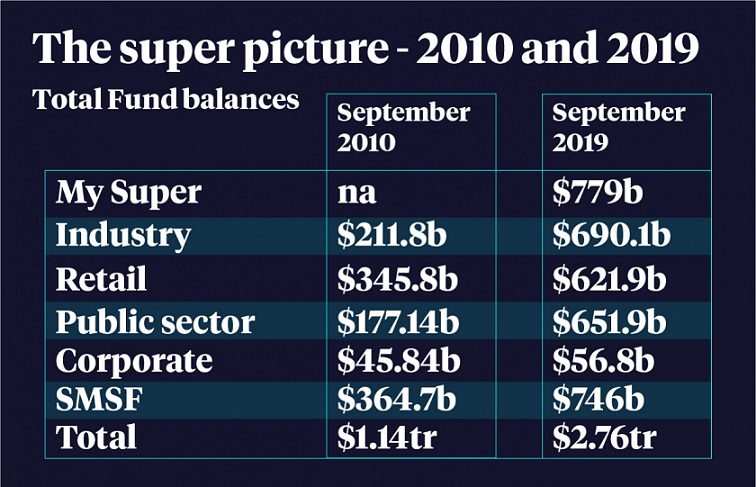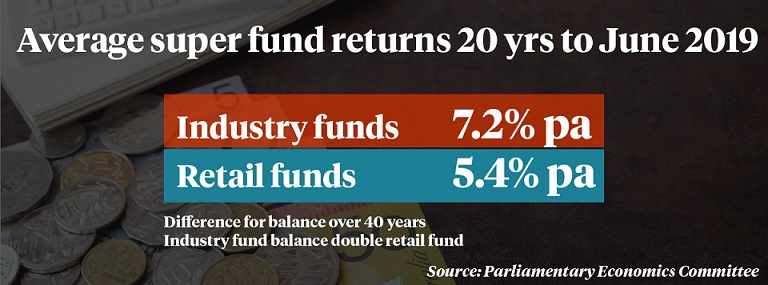But the ever caring Scomo Govt is moving to clean up the SUPER scandals.
Wonder how the Industry Super companies that feed the unions will go ?
ASIC is toughening its approach to superannuation funds with new powers
Rod Myer 10:00pm, Dec 25, 2019 Updated: 10:32pm, Dec 25

ASIC chair James Shipton has new powers to keep super funds in line. Photo: AAP
Australia’s corporate watchdog is stepping up its oversight of superannuation in response to the banking royal commission.
ASIC superannuation executive leader Jane Eccleston announced the regulator will be closely monitoring super fund behaviour after numerous scandals were exposed by Royal Commissioner Kenneth Hayne’s inquiries.
The pledge comes as the federal government has released details of its plans to further boost the powers of regulators by obliging better co-operation between ASIC and the Australian Prudential Regulation Authority.
Along with demanding general co-operation, Treasurer Josh Frydenberg said the two regulators would be obliged to:
Share information to the maximum extent practicable; and
Notify the other whenever it forms the belief that a breach of the law for which the other regulator has enforcement responsibility has occurred.
The obligations were recommended by Commissioner Hayne.
Both regulators were found to be weak and too close to the industries they regulate, which in turn made them unwilling to take tough action.
Ms Eccleston said ASIC is toughening its approach.
“In an effort to deter any future trustee misconduct, we will take action against historical and present wrongdoing,” she said.
“This includes trustee behaviour that causes monetary loss to consumers, financial exclusion, loss of market integrity and confidence, and behaviour that undermines competition.”
Trustees on notice
ASIC, she said, is also putting trustees on notice for persistent underperformance and will use it as an indicator of potential criminal behaviour.
“While not illegal in itself, underperformance is often an indicator of misconduct and can coincide with breaches of the law, such as conflicts of interest, failure to act in members’ best interests, and lack of diligence by trustees,” Ms Eccleston said.
The four areas that are the main target of ASIC’s attention are:
Advice in superannuation
Insurance in superannuation
Fees and cost disclosure
Taking action against misconduct by super trustees.
In early December, the regulator completed a market scan of advice services offered by super funds to their members to get a picture of how funds are functioning.
The scan is focused on “the different models of financial advice provided by 25 superannuation funds across the retail, corporate, public and industry sectors”, she said.
It found most of that advice was “generally appropriate”.
Costs matter
Clear and understandable information on fund costs and performance are also in the gun.
“In the spirit of members’ bests interests, trustees have an obligation to ensure that consumers receive transparent and useable information,” Ms Eccleston said.
That information should enable them to “understand fees and costs, compare products, and make confident and informed choices”.
“To this end, we are continuing our work on fee disclosure obligations across both superannuation products and managed investment schemes.”
Westpac case has helped
ASIC’s powers in the superannuation area received a boost late in the year when the full Federal Court found in its favour in a case against Westpac.
The case swung on the regulator taking the view that advice given to customers was personal advice – which requires advisers to consider consumers’ individual circumstances – and not the general advice they had provided.
“Westpac attempted, assiduously, to get the customer to make a decision to move funds,” the judge in the case found.
“Westpac took unfair advantage of that asymmetry by implementing a carefully crafted telephone campaign … The telephone campaign was directed to persons with whom Westpac had an existing relationship and in a real sense occupied a position of trust with respect to the customer’s superannuation fund,” the court found.
The case was significant as it was the first undertaken by ASIC after the Hayne commission and was a test of new powers delivered under the government’s response to the commission.
The court’s initial finding against ASIC was a blow to perceptions around these new powers, but the subsequent victory at appeal should give ASIC confidence to act on them further.
The New Daily is owned by Industry Super Holdings
https://thenewdaily.com.au/finance/supe ... per-funds/




